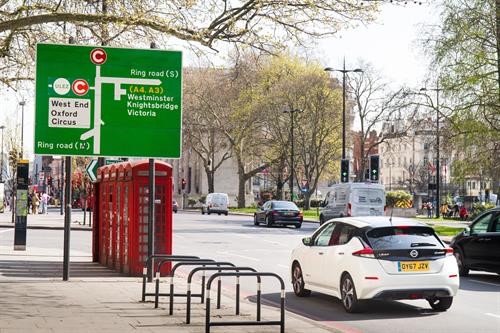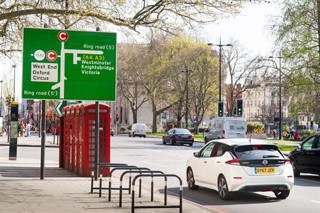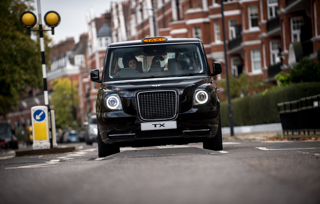Old diesel cars that will be non-compliant with the expanded ultra-low emission zone (ULEZ) area in Greater London are still increasing in price, according to Auto Trader.
This is despite the fact that these vehicles will incur a daily charge of £12.50 from today.
Generally, diesels built pre-2015 and petrols built pre-2005 incur a ULEZ charge in addition to any congestion charge.
The expanded ULEZ covers an area up to, but not including, the North Circular Road (A406) and South Circular Road (A205).
It is 18 times larger than the original central London ULEZ, which occupied the same area as the congestion charge zone.
Transport for London (TfL) estimates that 100,000 cars, 35,000 vans and 3,000 lorries could potentially be affected by the tighter standards in the expanded area every day.
Ian Plummer, commercial director of Auto Trader, said: “You might expect there to be a big dip in demand levels and the price of cars that are not compliant with the new ULEZ zone, but that’s not the case.
“The used car market is so hot that even diesel cars over five years old are continuing to increase in price.”
Greater London older diesel values up nearly 24%
This is happening nationally, but also in Greater London, where the average price was £19,018 last week, up almost 24% year-on-year.
The average five year old diesel increased in price from £13,513 to £ 18,293 in the last 12 months.
Plummer said: “Penalising people for driving dirty vehicles is one thing, but incentivising them to drive cleaner cars is probably going to be more productive in the long term.
“The £620m investment in grants for electric vehicles (EVs) and street charging points that has just been announced is welcome, but Ministers should consider how that investment is targeted.
“Our data shows that interest in EVs is coming almost exclusively from wealthier postcodes.
“The comparatively high up-front cost of EVs is proving to be a massive barrier for people on average or below average incomes.
“The Government and industry simply has to grasp this nettle if it is to supercharge mass adoption.”
Plummer said ideally this would mean removing VAT from purchases of new and used EVs.
It could also mean introducing some kind of means testing.
He added: “Incentives are needed to bridge the gap between traditionally fuelled cars and EVs for those who simply cannot afford the “green premium”.
“The Government highlighted the potential social injustice in EVs due to price issues, which makes it all the more frustrating that it’s failing to address it, choosing to prioritise targets over genuine substance.”
Nationwide policy needed for CAZs
The boss of Vauxhall, Paul Willcox, is calling for a single nationwide policy for clean air zones (CAZs) to simplify the rules and restrictions.
Daily charges for the UK’s current three CAZs – London, Bath and Birmingham – range substantially based on vehicle type, from £8 to £50 per day. The average fine for driving into a zone without paying the relevant charge is currently £120, reduced to £60 if paid within 14 days.
Paul Willcox, managing director of Vauxhall, said: “Clarification for permissible vehicles allowed to be used within these different zones are inconsistent and confusing for many – greater clarity is needed from the Government, and a single nationwide policy to simplify the rules and restrictions would benefit consumers more than current individual city policies.”
He continued: “Vauxhall estimates it will achieve cost parity between electric and combustion vehicles later this decade. Until then, the Government needs to help ensure buyers are not priced out of electric vehicle ownership.
“Grants like the current Plug-in Car Grant and Plug-in Van Grant, as well as the home charging grants have helped many make the switch already and are vital to ensure the growing uptake of electric vehicles continues. These will also help ensure a growing used market for electric vehicles emerges, giving second-hand buyers the possibility to make the switch.”
Caura, the free vehicle management app, has predicted that £864 million worth of fines will be issued in the first six months of the expansion’s operation.
Caura’s research also indicates 565,000 in a total of 2.6 million (one in 4.6) London-based cars are not compliant with the zone’s emission standards and thus their owners will need to pay the daily fee to enter.
TfL says that more than 80% of vehicles that travel into the zone are now compliant, up from 39% in February 2017 when the plans for the larger area were first announced.





















Login to comment
Comments
No comments have been made yet.